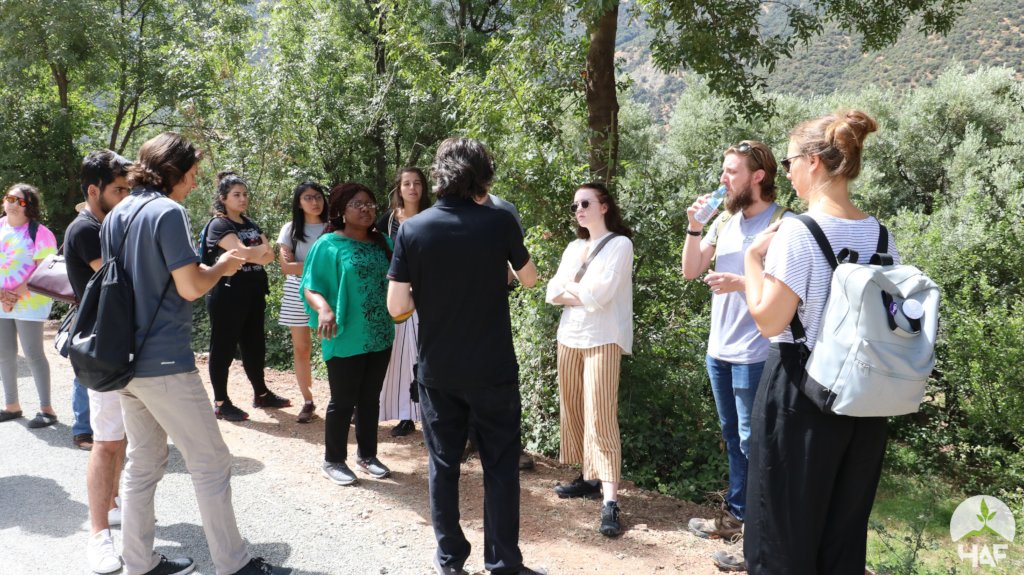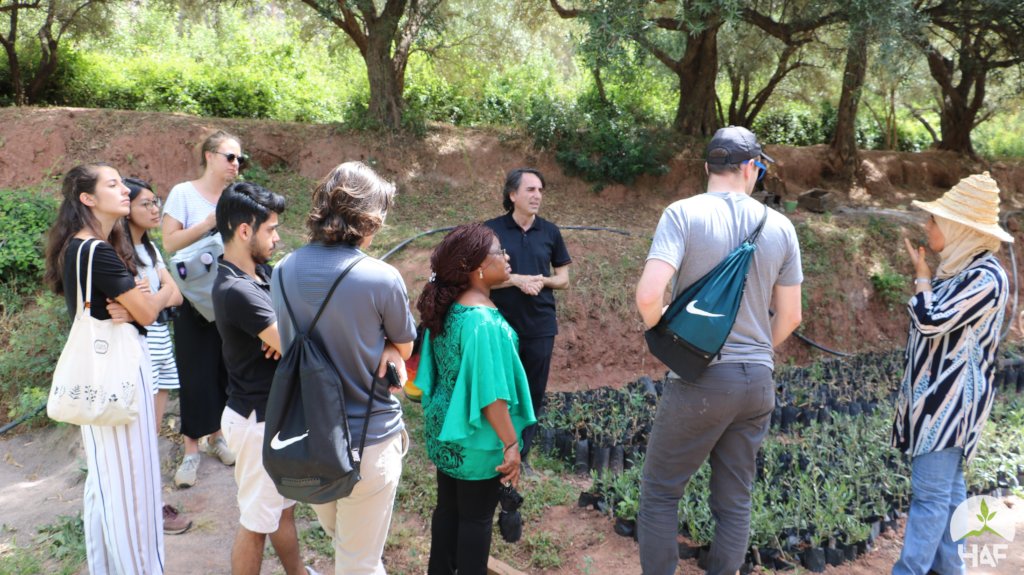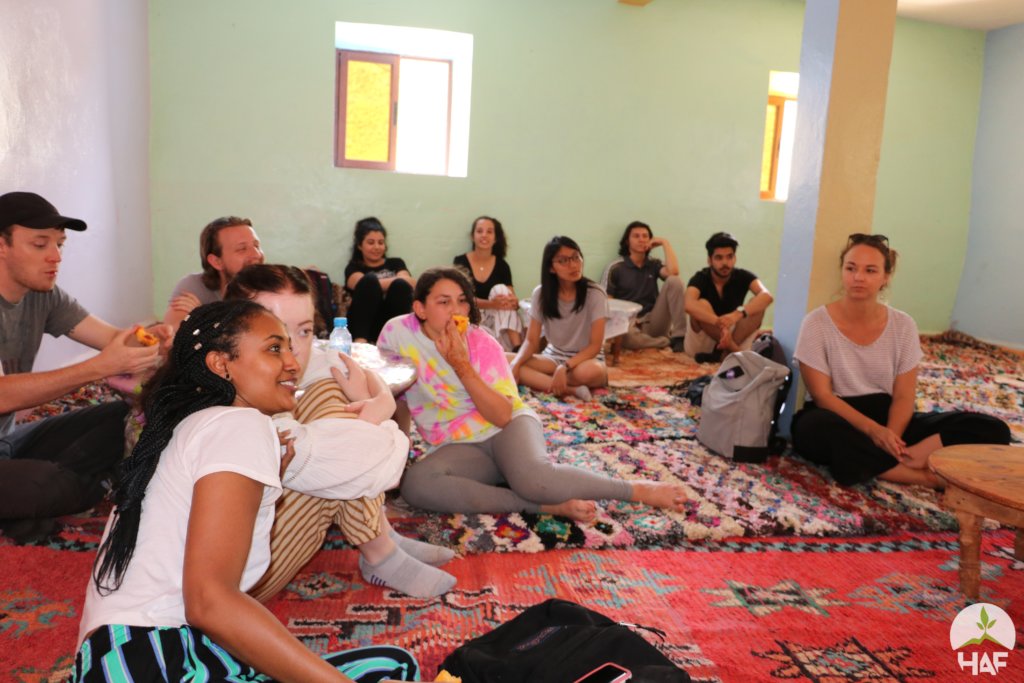On a sunny Friday morning, the High Atlas Foundation took us on a field trip to the village of Tassa Ouirgane in the Al-Haouz province. Our small but very international group consisted of students from George Mason University in Virginia, student volunteers from all over the world, and staff members of the HAF.

Our first stop was about one kilometer before the village of Tassa Ouirgane. We were led down a small path and found ourselves in the middle of the tree nursery of the village. 40’000 olive tree saplings, funded by the United Nations Development Program, are grown here right at the border of the Toubkal National Park. HAF has assisted the village community both in implementing various community projects, including in irrigation, erosion prevention, and with a women’s cooperative. With partners, the village has managed to build a well, has developed a system to avoid the erosion by the river of their farming terraces, and in advocacy by and for the village towards Moroccan and international agencies.

After the visit to the tree nursery on the terraced fields, we continued our way into the village. Our group was warmly welcomed by the members of the local women’s cooperative who hosted us in the village’s school building. The Tassa Ouirgane cooperative is open to all unmarried female members of the village community and currently counts 14 members who meet on a weekly basis. The cooperative generates income by collecting, drying and selling wild medicinal herbs such as thyme. In addition, the women produce pastries and collect Ghassoul (natural mineral clay found in the High Atlas used for cosmetic purposes) for sale. After we got the chance to taste the homemade pastries, HAF director of projects Amina El Hajjami then held a workshop with the cooperative members in which they discussed the current agenda of the cooperative, such as electing their officers and having all members apply for identify cards so that they can be included in the official registration. All cooperative members participated in what appeared to be a lively discussion.
It was time for lunch. As it was a Friday, our hosts had prepared couscous that was greatly appreciated by the guests. The group was curious about the content of the workshop. What challenges do they face? What have they learned? What are their plans for the future? HAF president Yossef Ben-Meir acted as a translator from English to Darija and vice versa to initiate a conversation. It appears that the main challenge the cooperative is facing at the moment is internal communication. There is a need to find a system that updates the whole cooperative about the activities of the individual members and defines responsibilities. In this way, the coordination of work can be enhanced, and duplication avoided. They discussed as well that the working time of members should be recorded to have an overview of the effort that goes into the cooperative. In the future, the cooperative hopes to upscale its activities regarding the sale of wild herbs. The aim is to also offer herbs in the form of essential oils, for which a much higher quantity of herbs is required. However, the cooperative needs to develop a partnership agreement with the national park authorities to allow the increased collection of wild herbs. This is where HAF can also be helpful, through assisting their communication with this and other public agencies.

One further point in the discussion was to schedule an election for the presidency and other positions of the cooperative. An election or vote is only held when all 14 members are present, which to me pictures a very democratic understanding of the cooperative, in which all members have an equal say.
The Tassa Ouirgane women’s cooperative to me marks an impressive example, of what becomes possible when young people bundle their capacities and work together. It seemed to me that the cooperative is proud of its activities and has found a way to contribute to their community in a way that empowers the individual members.